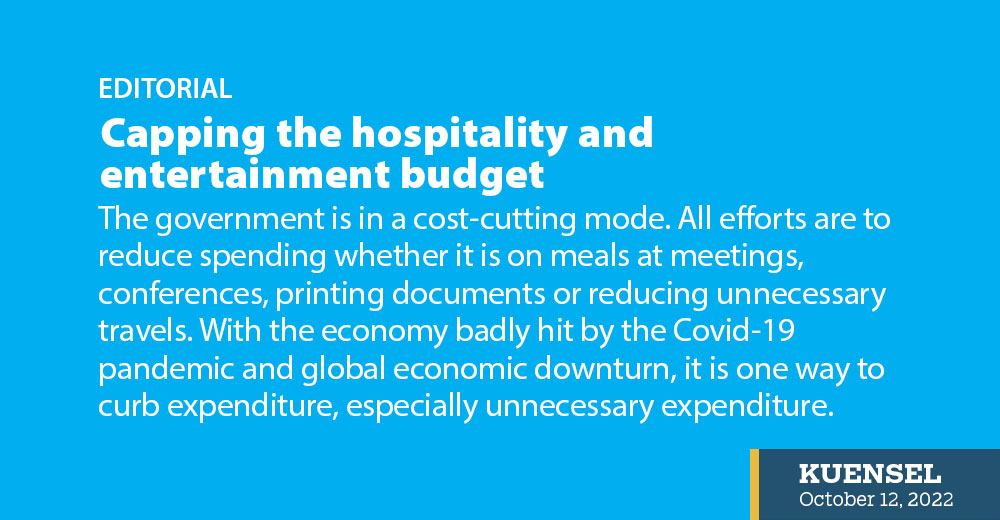The government is in a cost-cutting mode. All efforts are to reduce spending whether it is on meals at meetings, conferences, printing documents or reducing unnecessary travels. With the economy badly hit by the Covid-19 pandemic and global economic downturn, it is one way to curb expenditure, especially unnecessary expenditure.
There are many unhidden expenditures that cost the government coffer. The so-called hospitality and entertainment budget is one. Left to the discretion of those who are entitled, it could hit the government exchequer hard. The finance ministry revising the Hospitality and Entertainment (H&E) budget is timely and welcomed, especially when the government is hard on funds.
Governments across the world spend a lot of money on hospitality and entertainment. It is a part of the system or governance. We have to spend wherever it is necessary and be reasonable where unnecessary. Entertaining a delegation with food and wine is the norm. But entertaining expenditure for hosting tokha (party), nyendar (offerings) or semso is way too much for those who are eligible for the privilege.
Many say the current government is unfortunate as the Covid-19 restrictions have curtailed travel, gathering and other privileges an elected government or ministers could enjoy. H&E had cost the country heavily in the past. To put into context, between 2016 and 2018, ministries. spent Nu 9.8M in solera, nyendar, tshokchang, khaddhar, and semso from the H&E budget, according to the Public Accounts Committee report 2020. It was about Nu 55 million before – more than the total turnover of a medium-size company or worth building a school, buying several dialysis machines or repairing the capital city’s deteriorating roads.
The revised guidelines is expected to provide clarity on the allowable and disallowable expenditures under the H&E expenditure, standardise the procedural requirements and restrictions governing the manner and extent to which public funding may be expended.
In reality, our Lyonpos and Dashos are expected to dish out soelras, donate generously or host gatherings. It is in our culture to the extent that some even complain of their new “dasho” post being a financial burden. Whether it is an invitation to a rimdo or a birthday or at the duthroe, the expectation is they should contribute more.
The revised guidelines look into this too. If the expenses for hospitality and entertainment must be directly related to, or associated with, the active conduct of official business, it will be entertained. Those entitled could also seek the approval of the Lhengye Zhungtshog with appropriate justification for genuine reasons for spending beyond the ceiling of Nu 1.5M per annum.
However, no rules or guidelines are watertight. At the end of the day it is honesty and integrity that would matter or make a difference. If a minister donates a statue to the village Lhakhang in his constituency and books the expenditure as H&E, it is not right. Nobody will question that.


